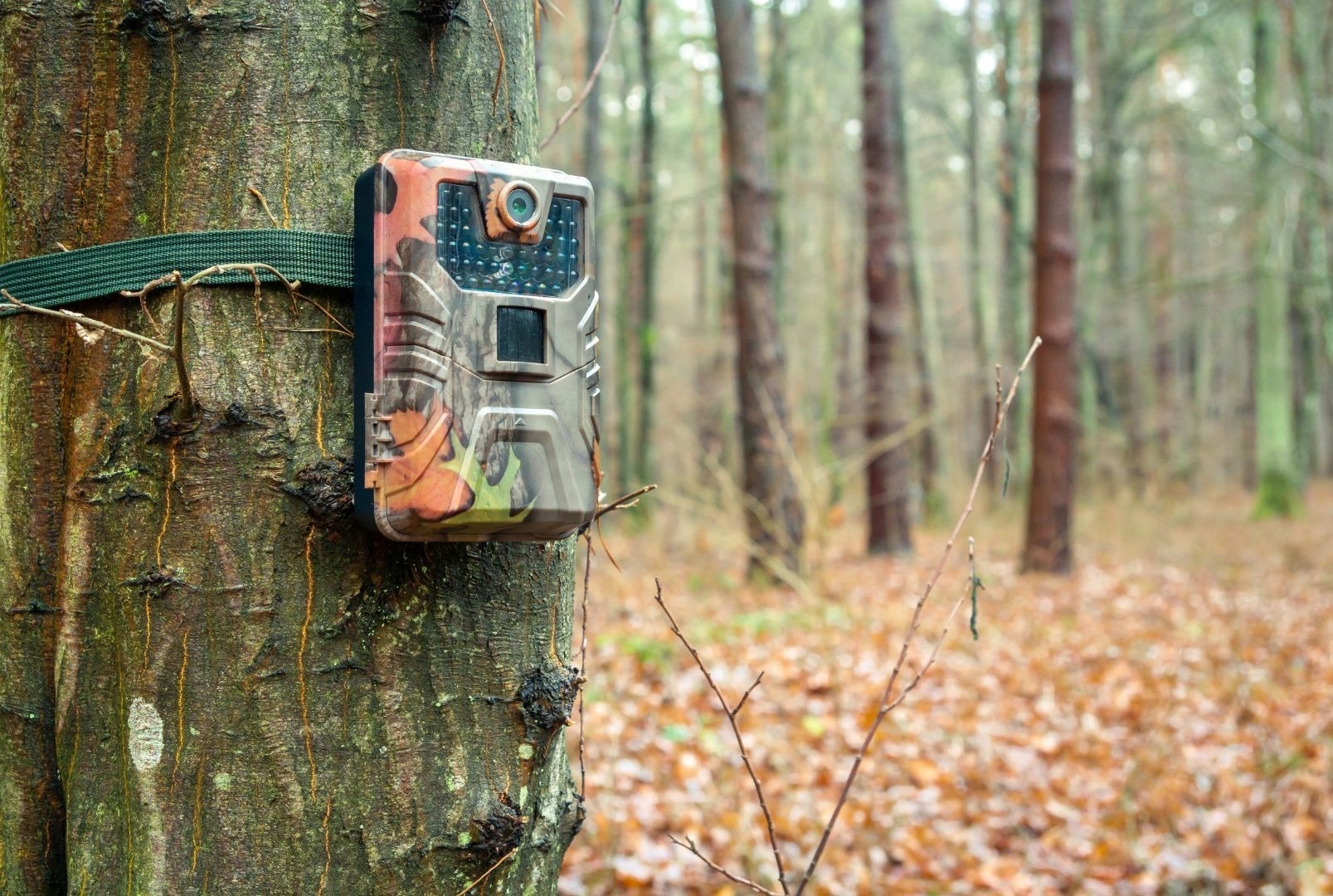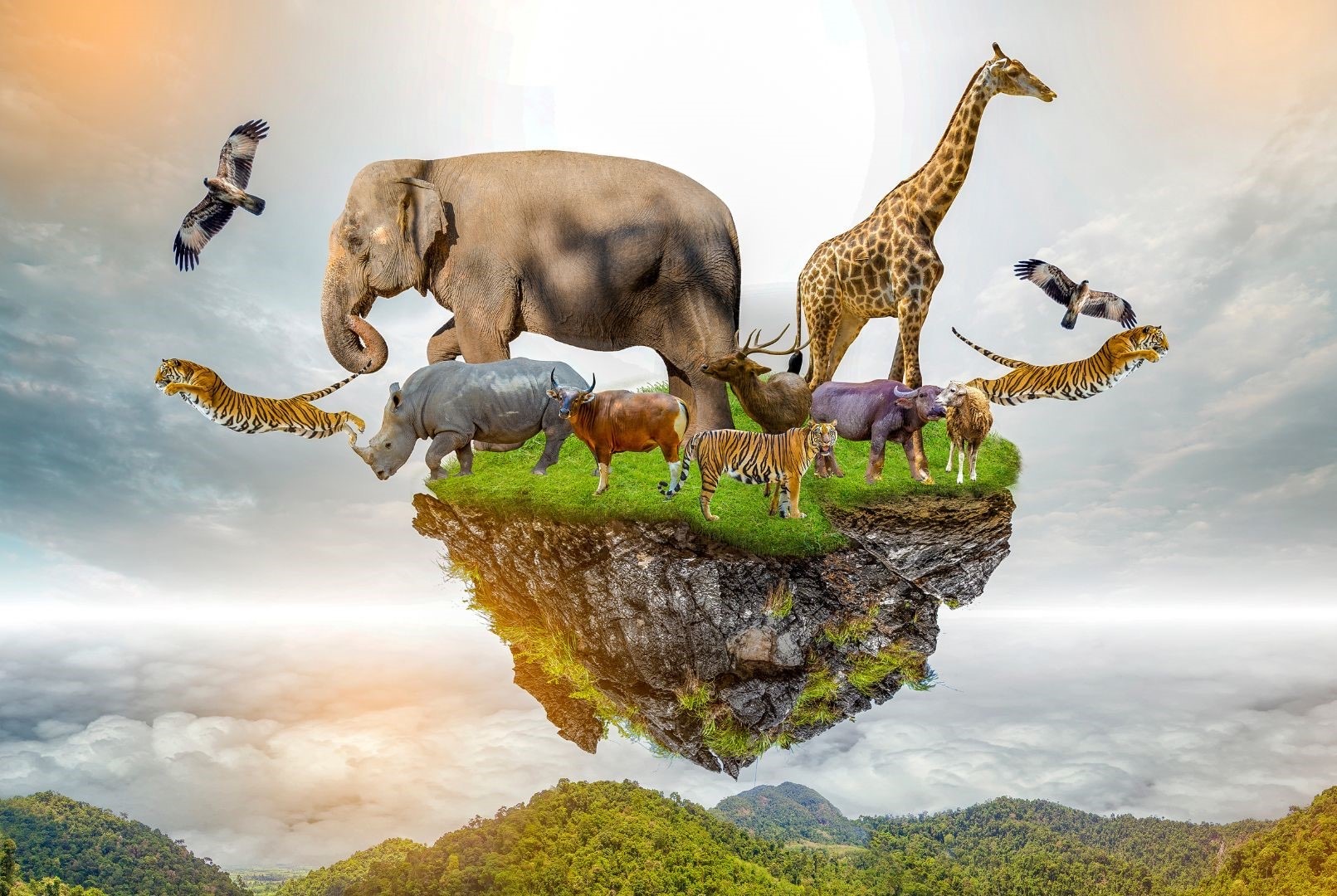In the heart of India’s lush wilderness, home to over 75% of the world’s tiger population, a technological revolution is reshaping the landscape of wildlife conservation. While India boasts an impressive 106 national parks spanning over 44,402.95 km², and 54 tiger reserves, traditionally, monitoring this vast area has been a Herculean task involving trap cameras that automatically capture images of animals as they pass by. These images are stored in SD cards of the camera which are removable and have limited capacity

How Its Done

Forest guards manually collect these cards and sort countless images to analyze animal populations—a process fraught with challenges:
Challenges in Traditional Wildlife Monitoring
The traditional system, however, is fraught with challenges:
- Species Classification and Identification: Manually sorting and classifying thousands of animal images stored on hard disks is time-consuming and prone to errors.
- Unique Identification of Tigers: The process of matching tiger stripe patterns to identify individuals is extremely labour-intensive, taking up to 10 minutes per image.
- Data Storage and Accessibility: Using physical hard disks limits data accessibility and increases the risk of data loss with no backups, not to mention the issues of security and maintenance.
- Manual Processing: The extensive manual intervention required throughout the data handling process is inefficient and slows down the conservation efforts significantly.
Wildlife Data Management and Species Classification Platform
To address these inefficiencies, Valiance has introduced a cutting-edge Wildlife Data Management and Species Classification Platform. This innovative platform harnesses the power of cloud computing and machine learning to transform how wildlife data is managed and analyzed. Here are the key features and benefits of the platform:
- 1. Automated and Secure Classification
- Instant, automated categorization of images upon upload reduces human error and speeds up data processing, all while ensuring data is encrypted and securely stored in the cloud. The categorization is done in separate folders so that it becomes easy for the users to locate the images of a particular species.
- 2. Identification of Unique Tiger
- The platform utilizes advanced proprietary algorithms to quickly identify individual tigers from images, vastly reducing the time and effort required compared to manual methods. The identification happens with a click of a button.
- 3. Robust Data Security
- By storing data on the cloud, the platform ensures enhanced security protocols such as end-to-end encryption, regular backups, and multi-factor authentication to safeguard sensitive information against unauthorized access and data breaches. The Vulnerability Assessment and Penetration Testing (VAPT) conducted by an external agency VAPT further helps to make the application, cloud, and data secure.
- 4. Tracking and Geolocation
- Secure tracking of tiger and elephant movements through encrypted data from camera locations and timestamps aids in detailed and protected mapping of their territories. This helps in understanding the movement and possible conflict zones.
- 5. Find a Tiger
- This feature enables the user to identify a tiger from a user-uploaded separate photograph. The feature provides the probabilities of matching with the already uploaded repository data.
- 6. Comprehensive Risk and Density Analysis
- The platform provides secure predictions of attack risks and animal density,facilitating better and more secure wildlife management decisions. The attack risks from the carnivores can be identified by checking the canine teeth through available pictures and the herbivore density can be calculated by checking the number of herbivores in that particular area. This interpretation would help us understand that the carnivores have sufficient herbivores to feed upon otherwise there may be a tendency for the carnivore to move for food which might entertain a conflict situation.
- 7. Efficiency and Timesaving
- The classification of animal exercise requires much less time than the conventional manual approach. Uploading and classifying 1 Lakh images of nearly 1-1.5 MB takes nearly 24 Hours. Similarly, the automatic identification of a unique tiger exercise with the help of our machine learning algorithm takes much less time than the manual identification process with higher accuracy.
- 8. Enhanced Visualization
- Users can access maps showing the geofence of tiger reserves, camera locations,and animal density, along with detailed lists of image data. This helps the user to ascertain greater visibility of the carnivores and herbivores along with their density.
- 9. Scalability and Data Integrity:
- The cloud-based solution offers scalable storage solutions and ensures data integrity, backed by stringent security standards. This enables the user to upload any amount of data without thinking about the space available on the hard disk. All the uploaded data in one place provides better analytics.
- 10. Secure Dashboard and Automated Reporting:
- With secure access to a comprehensive dashboard, stakeholders can receive automated reports detailing classified images, species counts, and other critical data, all generated through secure, automated processes.
Valiance’s platform transcends traditional wildlife management by harnessing the power of technology to revolutionize conservation efforts. This innovative approach not only streamlines the process of data management but significantly enhances the decision- making capabilities of forest officials. By shifting from outdated manual methods to advanced cloud computing and machine learning, the platform ensures the integrity and accessibility of vital data, enabling a more efficient and secure management of India’s rich biodiversity.
By adopting this comprehensive and innovative approach, we not only protect iconic species like the tiger but also the entire ecosystem that sustains them. Valiance’s platform is pivotal in ensuring that wildlife management is proactive, predictive, and precise, securing a thriving future for biodiversity on a global scale. With each step forward in this technological evolution, we’re not just preserving the present; we are laying the groundwork for a vibrant, sustainable world for generations to come.!
Piyush is a seasoned professional with over 14 years of extensive experience blending technical and administrative expertise. He possess a deep understanding of transformative technologies, including IIoT (Industrial Internet of Things), IoT (Internet of Things), data analytics, artificial intelligence (AI), and machine learning (ML). His proficiency in these areas allows him to leverage technological advancements effectively, driving innovation and delivering optimal solutions to clients.




